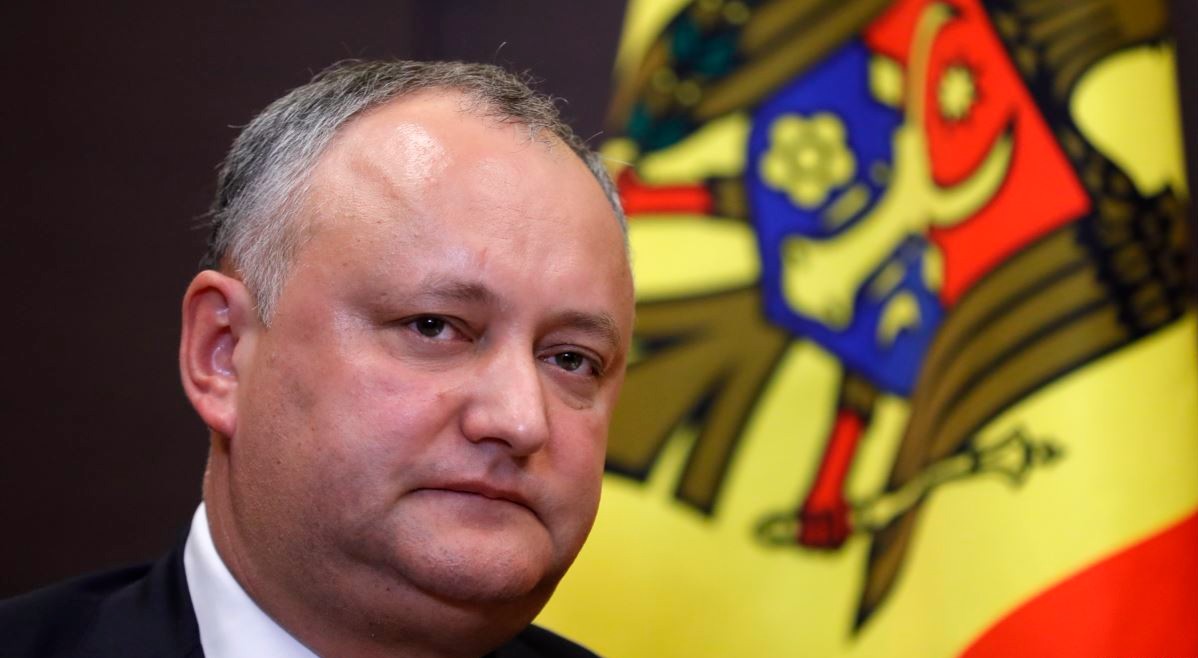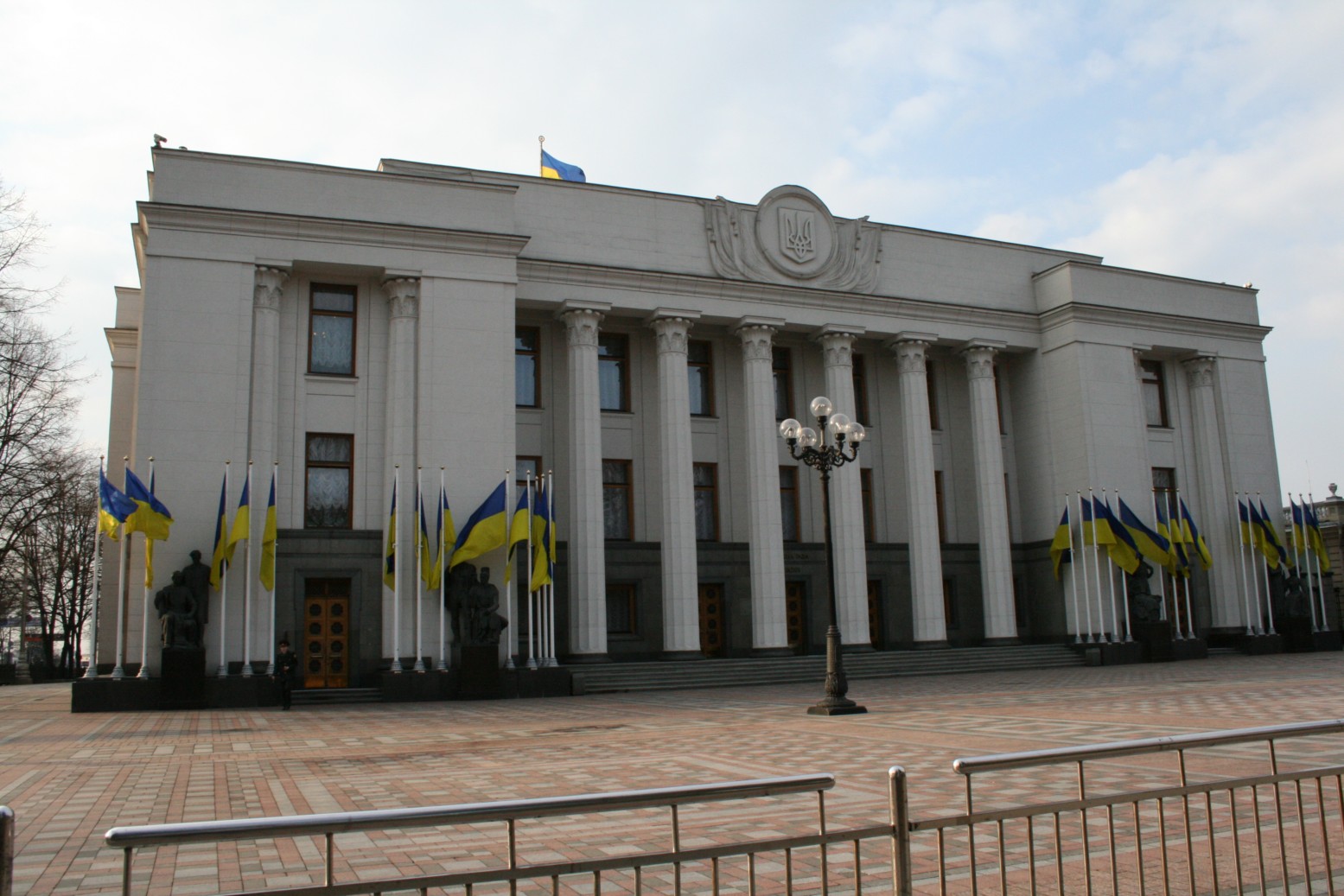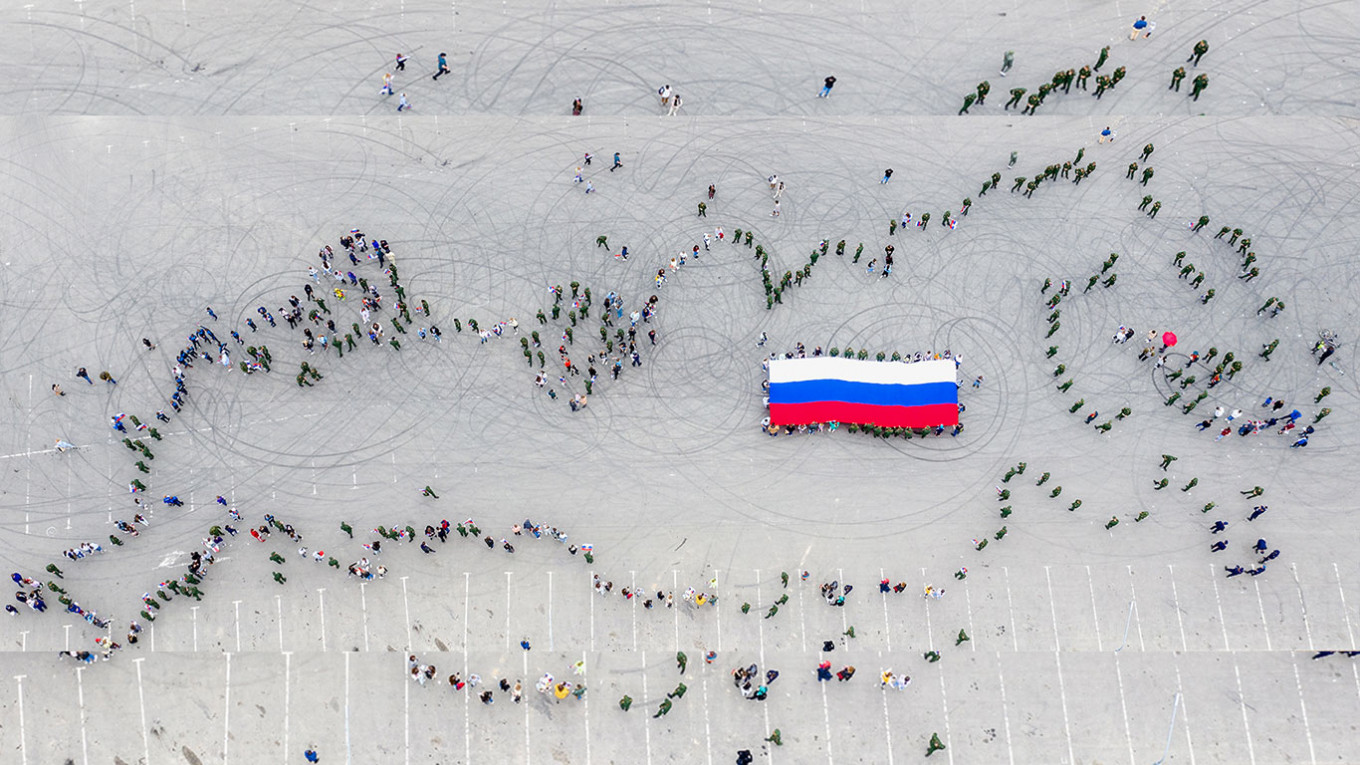
Moldovan President Igor Dodon Suspended by the Constitutional Court
Moldovan President Igor Dodon Suspended by the Constitutional Court
The Moldovan Constitutional Court temporarily suspended the country’s president, on October 20, following a request by the government to interpret article 98, paragraph 6 of the Constitution, covering the president’s role in government reshuffles (Constcourt.md, October 20). The issue dates back to December 27, 2016, when the office of the minister of defense became vacant after then-minister Anatol Salaru was dismissed by the newly inaugurated President Igor Dodon. The Liberal Party, at that point a member of the ruling coalition, withdrew its political support for Salaru, and the government initiated the dismissal, which was eagerly accepted by Dodon. However, the president refused to appoint then–environment minister Valeriu Munteanu, another Liberal Party appointee, to fill the vacancy at the top of the defense ministry. The inter-institutional deadlock was immediately addressed by the Constitutional Court on January 24, 2017. On that date, the Court ruled that a president can only decline a prime minister’s proposal for a government reshuffle once, but it did not elaborate on what happens if the president refuses to accept a cabinet nomination for a second time (Constcourt.md, January 24).
The Democratic Party–controlled government never went ahead with nominating Valeriu Munteanu for a second time. Meanwhile, the Liberal Party withdrew from the ruling coalition in May and was replaced by a group of Liberal Democratic Party defectors, under the leadership of former prime minister Iurie Leanca, who became deputy speaker of Parliament on June 2. The European People’s Party of Moldova, headed by Leanca, nominated its vice president and Leanca’s former chief of staff, Eugen Sturza, to become minister of defense. However, the public announcement came from the Democratic Party chairman, Vlad Plahotniuc, on September 12. President Dodon rejected the nomination the following day, citing Sturza’s lack of experience in the defense sector and the nominee’s questionable integrity. Instead, Dodon proposed former defense minister Victor Gaiciuc (2001–2004), who also served as Moldova’s ambassador to the North Atlantic Treaty Organization (NATO) during former Moldovan president Vladimir Voronin’s second term (Zdg.md, September 13). The government insisted on Sturza, but President Dodon rejected his nomination again on September 18 (Unimedia.info, September 18). The following day, the government appealed to the Constitutional Court for a way out of this deadlock.
The Court issued a highly controversial ruling on October 17, mandating that if the head of state refuses to carry out his constitutional duties by rejecting a cabinet nomination twice, this represents grounds for his or her temporary suspension from office (Constcourt.md, October 17). Two days later, the government asked the Constitutional Court to temporarily suspend the president, which it did on October 20 (Constcourt.md, October 20). Under the Court’s ruling, the president’s suspension will be in force until an acting president appoints a new defense minister—despite the fact that no such provisions exist in Moldova’s Constitution. Article 89 of the Constitution clearly states that a president can only be suspended from office if he or she has violated the Constitution. One third of the members of the parliament need to initiate the suspension, and two thirds of the legislators need to vote in favor for the suspension to be approved; only the citizens can remove the president from office in a national referendum (Presedinte.md, accessed October 24). Ironically, the government acknowledges in its referral to the Court that, despite President Dodon having violated the Constitution, “a referendum is too difficult to achieve” and “it does not guarantee a solution to the deadlock” (ConstCourt.md, September 19), meaning that a recall referendum against Dodon is likely to fail. The absurdity of the situation is that Dodon’s fellow Socialists agree that the president has violated the Constitution and Dodon himself openly calls for a referendum (RTR Moldova, October 20). Nonetheless, the Democratic Party pulled an ace from its sleeve, as the Constitutional Court equated Dodon’s brazen refusal to carry out his duty with a president’s inability to do so—a provision normally covering health-related impediments.
The present situation is not the first time Moldova’s Constitutional Court has engaged in similar far-reaching judicial activism. In fact, Dodon owes his presidency to a highly controversial ruling that reintroduced direct presidential elections in March 2016 (see EDM, March 8, 2016). Another watershed decision was the banning, in April 2013, of then–prime minister Vlad Filat from being reappointed to head the cabinet based on allegations of corruption (RFE/RL, April 23, 2013). This time, Dodon attempted to give the Court a taste of its own medicine, alleging that Eugen Sturza, a former Filat advisor, was also corrupt, but to no avail. The Constitutional Court’s refusal to entertain such charges has strengthened critics’ accusations that Moldova’s highest court currently serves the interests of one person—oligarch Vlad Plahotniuc. Though, it may seem as if this latest court ruling undermines the tacit Plahotniuc-Dodon power-sharing agreement (Jamestown.org, March 23), in fact, the Plahotniuc-controlled government did Dodon a favor by allowing him to save face by virtue of not taking part in this cabinet appointment. Some are even predicting that this controversial ruling could be used to make Plahotniuc prime minister without Dodon having to take the blame for it (Deutsche Welle—Romanian version, October 18; Trb.ro, October 20).
Meanwhile, on October 24, Sturza was sworn in as defense minister by Parliamentary Speaker and Acting President Andrian Candu, thus ending President Dodon’s suspension. Still, there is hardly any major political party, other than the Socialists, willing to defend Dodon against this attack on presidential powers that undermines the few remaining checks and balances in the Moldovan political system. Moldova’s highly polarized politics notwithstanding, Dodon and Plahotniuc are both fully complicit when it comes to the most dramatic case of democratic backsliding in Moldova’s recent history—the change of the electoral system (see EDM, July 25). Ultimately, how Dodon reacts to this latest challenge to his constitutional powers could either make or break his presidency. So far, he has vaguely threatened to initiate a popular movement in favor of “early parliamentary elections and transition to a presidential form of government” (Presedinte.md, Newsmaker.md, October 18). Yet, regardless of what the president does, Plahotniuc is now in an even stronger position to further consolidate his grip on power.


